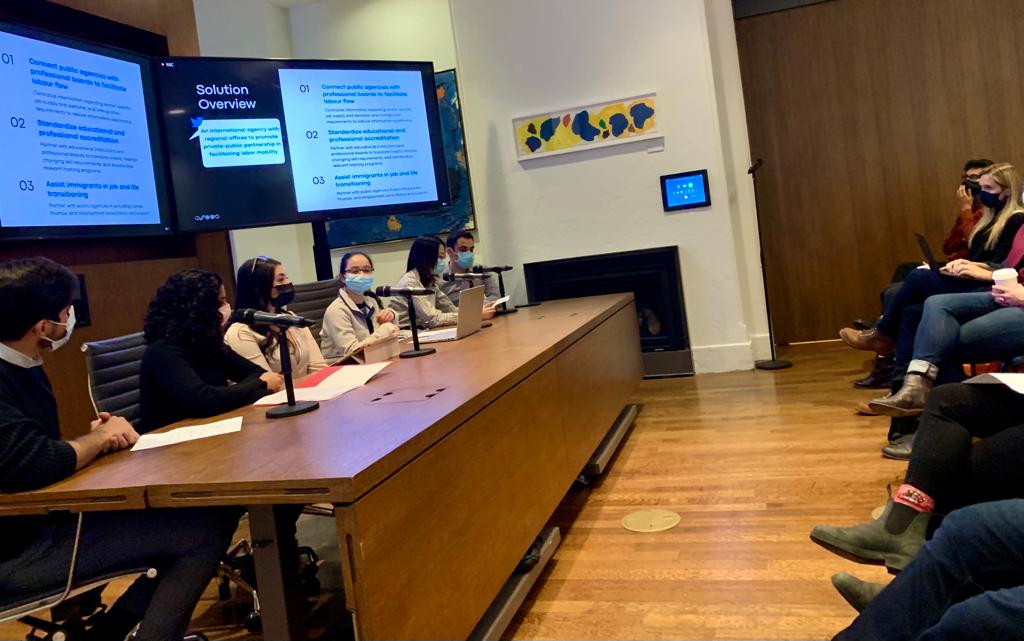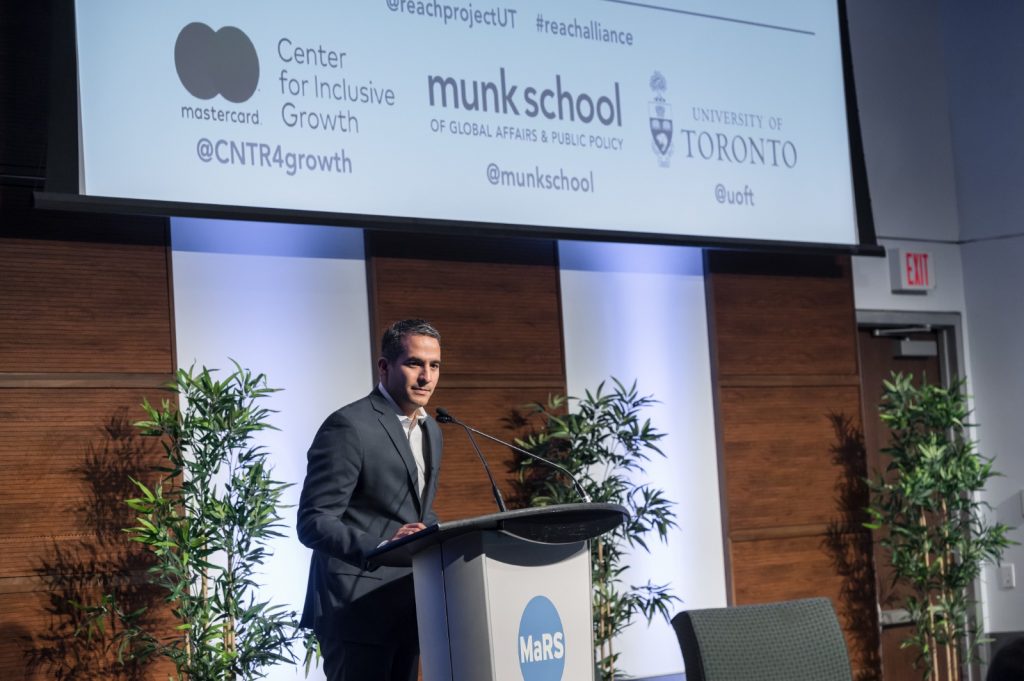
Master of Global Affairs students produce real-world case studies to help address global inequality
Students in the Munk School’s Master of Global Affairs program have produced five case studies examining the problem of inequality, as part of a new seminar course taught by Arturo Franco, senior fellow at the Munk School.
The course, Public-Private Solutions to Global Inequality, challenges students to think critically about the strategies, policies, and actions that different sectors can take to move their communities and economies towards equity and prosperity.

Following Built for All, a ‘north star’ framework designed with contributions from Nobel laureates, heads of international organizations, and some of the world’s leading thinkers across sectors; students learned about some of the most pressing systemic challenges that have perpetuated economic exclusion.
“Last semester, I had the privilege of taking Public-Private Solutions to Global Inequality. It was an eye-opening and thought-provoking class, where we got to hear and learn from professionals in the field,” wrote Larissa Chan, MGA candidate and junior policy analyst at Global Affairs Canada.
One such professional was co-lecturer Walt Macnee, former president for international markets at Mastercard. During his tenure as vice-chairman and advisor to the CEO of the global payments and technology company, Mr. Macnee was crucial in launching the Mastercard Center for Inclusive Growth, an organization working on the front lines of inclusion and sustainability. Leading the course gave Mr. Macnee renewed hopes for what the next generation can achieve to address the challenge of building a more equitable future. “Munk School students have the right mix of skills, experience, and commitment to contribute to inclusive growth as they move into the next steps in their careers.”
“Virtually in every class, guest lecturers from multiple sectors shared their experience and how their work creates social impact,” wrote Kate MacKenzie, a second-year MGA student with a background in corporate partnerships. More than a dozen guest lecturers — including AI and shared prosperity expert Katya Klinova, Jake Porway, founder of DataKind; Digital Planet co-founder Ravi Chaturvedi; and head of sustainable finance at SecondMuse, Erica Barbosa — participated in the course last Fall.
“Talking to professionals gave me the opportunity to narrow my career trajectory, and ask questions from those already working in that sector,” MacKenzie added.
“Additionally, Professor Franco assigned deliverables very similar to the ones he expected at the Mastercard Center for Inclusive Growth. This offered the whole class, no matter their level of experience, the chance to meet professional deadlines and expectations.”
“Second only to climate change,” Franco said, “global inequality is a major challenge of our time. Munk School students are now prepared to combine

the rigor of academia, with the innovative spirit of the private sector, to build an economy that truly works for everyone, everywhere.”
The student-led case studies, launched yesterday, look at individual regions, countries, or corporations, striving to advance inclusion and sustainability. “We had the opportunity to write a case study showcasing an example of an approach used to build more equitable economic environments,” Chan said. In their reports, students analyze and critique solutions already in place and make suggestions for future improvements.

